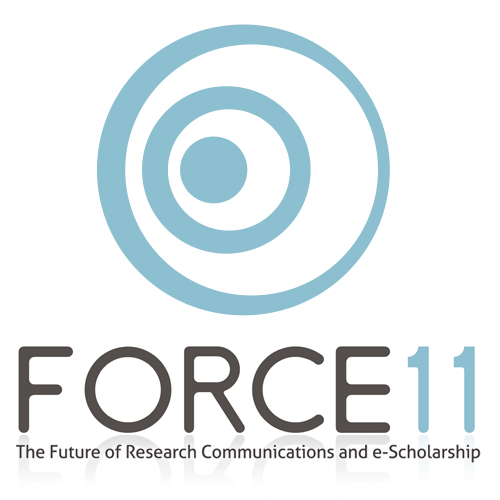FORCE11 (Future of Research Communications and E-Scholarship) — a global community of researchers, students, librarians, publishers, funders and scholars interested in the future of scholarship — is pleased to announce the launch of its new annual Force 11 Scholarly Communications Institute, which will take place at the University of California, San Diego (FSCI@UCSD) from July 30 through Aug. 4, 2017.
FSCI@UCSD is a week-long program that offers participants training, networking and skills development in new modes of research communication.
The UC San Diego Library is hosting the event at the Institute of the Americas on the UC San Diego campus.
“The research community lacks a forum for coordinated access to training, skills development, and expert knowledge on new modes of research communication,” says Cameron Neylon, President of Force 11, “even as funders are mandating change and the wider world has embraced new forms of communication.”
Based on proven models in other disciplines, FSCI@UCSD will bring world-leading experts in different aspects of scholarly communication to San Diego to design and deliver courses that will help participants to navigate this new world. Courses will be established for all levels, from absolute beginners to experts. They will also be aimed at different audiences, including students, researchers, administrators, funders, and information professionals, including librarians and publishers.
Typical topics to be covered at the annual event will include:
Introductory Level
- Open Access, Open Source, Open Data, What Does this All Mean?
- Building a Digital Presence: Social Media, Repositories, and the Researcher
- Research Communications 101: Tools for Improving Scholarly Communication
- Data and Other Forms of Non-narrative Publication
- Understanding Research Metrics
- Open Peer Review: How to give and Receive Criticism
Advanced
- Copyright, Open Access and Open Data
- New Metrics and How to Use Them to Build a Research Portfolio
- Introduction to Open Data Management
- Implications of OA on Research Publications
- Making it Work: Knowledge Mobilization, Knowledge Translation, and Popularization
Specialized/Topic-Focused
- Implementing Successful Open Access, and Open Data Mandates
- Supporting the Research Lifecycle for Researchers and Administrators
- Evaluating New Forms of Research Publication
- Implications of OA on Publication and Collection Building
- Data Ownership and Copyright Issues
- Data-informed Strategy for Institutional Leaders
- Maximizing Impact Across Disciplines
- Increasing Transparency and Reproducibility in Research Communications
“Scholarly Communication is in a disruptive phase at the moment. Students know the rules that governed their supervisors’ early careers are changing” said Maryann Martone, past president of Force 11 and UC San Diego professor emerita. “Libraries know the current publishing and data repository system is unsustainable; researchers know the systems within which they have worked are changing rapidly,” adds Brian Schottlaender, UC San Diego’s Audrey Geisel University Librarian. “Administrators know government, industry, funders, and the general public are expecting research to be performed, communicated, and measured in new ways. But knowing that things are changing is not the same as understanding what those changes are or how individuals and institutions can navigate them. This is what FSCI@UCSD will provide.”
For more information or to sign up to receive further information about the FSCI@UCSD, visit www.force11.org/fsci.

